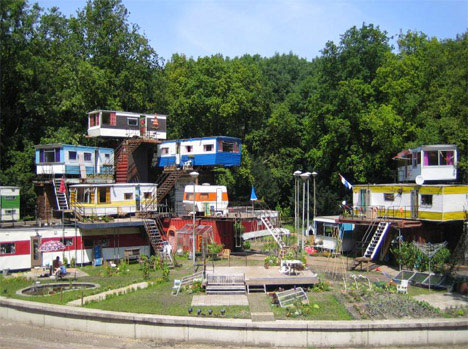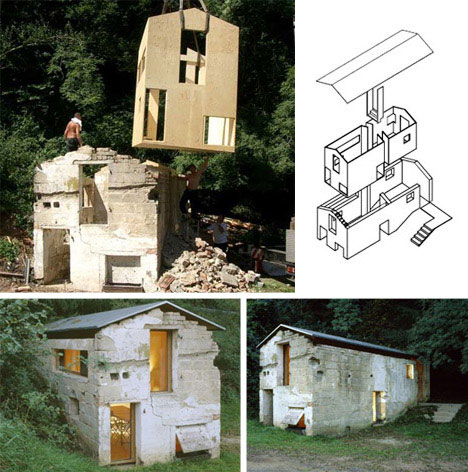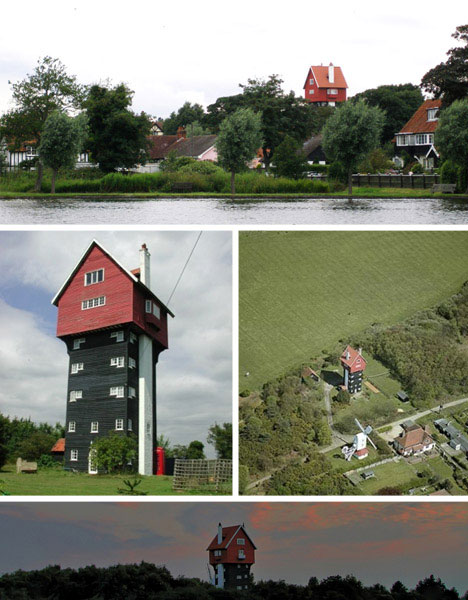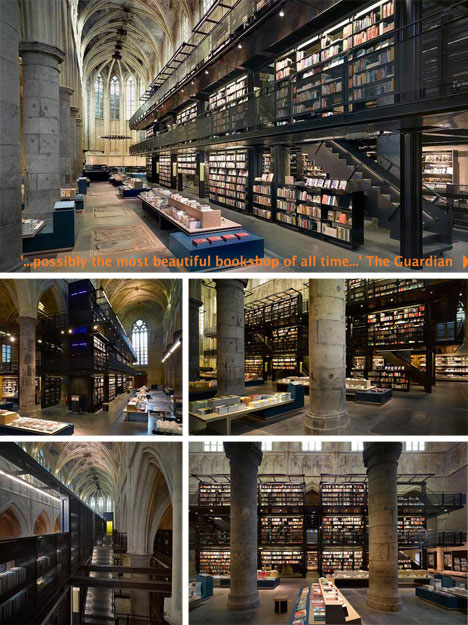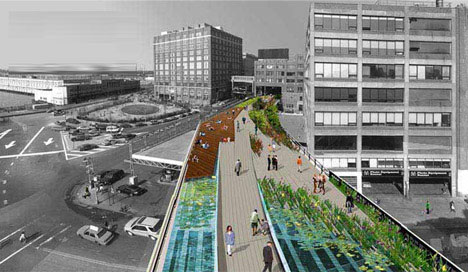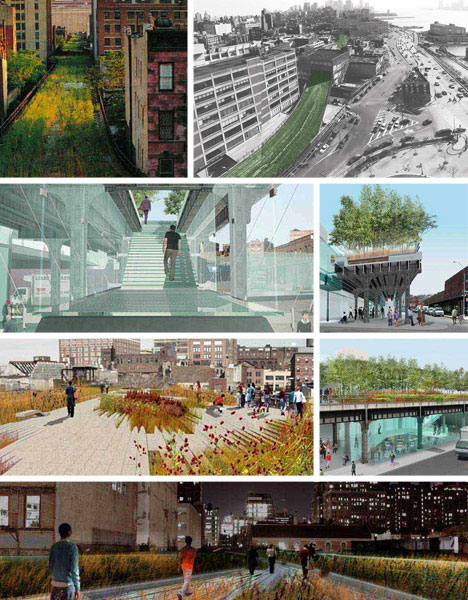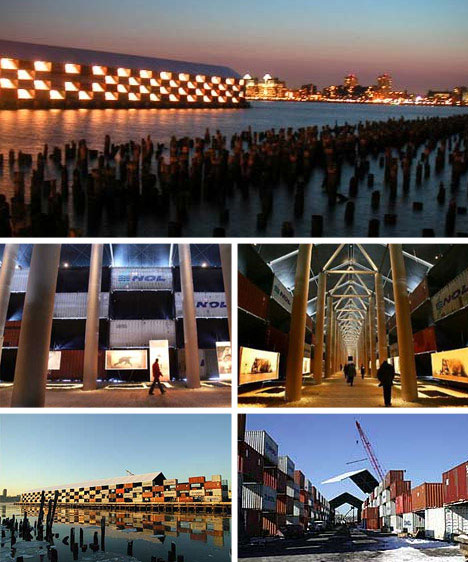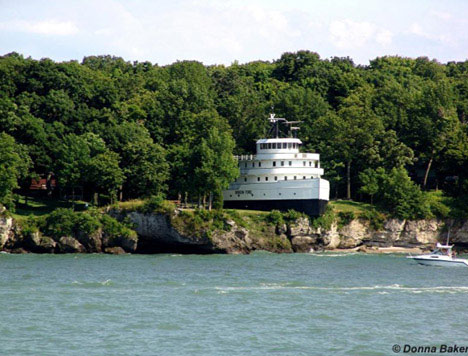Who would have thought you could make so much with simple structures from trailer parks? And that’s just the beginning. For ecological reasons, for eccentric clients and simply for fun, more and more architects and designers are figuring out clever approaches to adaptively reuse old structures in novel ways. From pigsty, ship and water tower houses to a beautiful chapel bookstore and a gigantic shipping container museum, here are seven more ingenious reuses of otherwise wasted architecture into amazing recycled designs. (See more under 70 Works of Recycled Art and Design).
A pigsty is probably the last place anyone would want to live, right? Well, this 230 year old building inspired FNP Architekten in Germany to create a unique blend of modern and aged architecture. Partly demolished in WWII this structure sat idle for years before these clever designers figured out a way to insert an entire building within the existing building – providing shelter and protection for the aged structural shell. If innovative architects can make something like this out of a pigsty it would seem that the sky is the limit.
If ever there was a weird building with an incredibly bizarre history this is it. What started as a water tower designed to look like a house floating above the tree line eventually became what it was designed to look like: an actual residence. The 30,000 gallon water tank hidden in the fake house shell was decommissioned after 85 years of use and eventually was transformed into a large house jutting up above the trees. There is no doubt that the current residents have absolutely the best view and worst walk home of anyone in town.
When they originally determined to build a modern library inside of a centuries-old church these property owners planned to place shelves in and around the building in much the same way most people would fill a typical interior. However, their architects had another idea: suspend very linear elements in separation from the existing structure to expose and celebrate the history (and height) of the building. In the end, walking around this amazing adaptively reused interior is as much about the architecture as it is about buying books.
Currently under construction, the new High Line elevated park in New York City takes advantage of an urban relic that has sat with potential but no plans for a very long time. Originally a stretch of elevated rail, the Highline has been unused for a very long time except by intrepid urban explorers. Instead of getting rid of the vegetation (or the structure altogether) the city has chosen to build upon it by creating a variegated green space that spans over more than a mile in the middle of Manhattan.
The so-called Nomadic Museum by Shigeru Ban is one of the most innovative shipping container architecture projects undertaken to date. The building spans an amazing 45,000 feet in length and is designed to move from city to city, to be deconstructed and reconstructed at various port locations around the world. The building is in many ways as much a work of ingenious art as are the myriad artworks contained within its portable walls. It is essentially minimalistic and aesthetically rhythmic but clearly conveys the many cargo containers used to make up its basic structure.
The amazing boat shown above was originally built by Henry Ford and was only decommissioned after a half-century of use in the late 1900s. The front part in particular contained the state and dining rooms as well as a galley and passenger lounge – all elegantly designed by Ford himself (and for himself). What better basis for creating an amazing residence? After separating the forward section of the abandoned ship from the rest of the hull the couple had this portion floated by barge to South Bass Island and turned into a home.
These creative barn conversions show how even the simplest of structures can be meaningfully reused. In some cases they blend modern and traditional elements to show what is new and old. In other cases the more traditional structure and interior finishes are left in place and contribute to a warm, comfortable and aged residential quality. Know of other creative adaptive reuse or building conversion projects?
